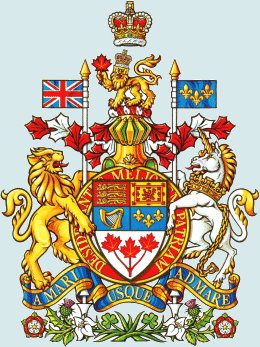
Origin and history of the name
Main article: Canada's name
The name Canada is believed to come from the Huron-Iroquois word kanata, which means "village" or "settlement". In 1535, locals used the word to tell Jacques Cartier the way to the village of Stadacona, [1] site of present-day Quebec City. Cartier used Canada to refer not only to Stadacona, but also to the entire area subject to Donnacona, Chief at Stadacona; by 1547, maps began referring to this and the surrounding area as Canada.
The French colony of Canada, New France, was set up along the Saint Lawrence River and the northern shores of the Great Lakes. Later it was split into two British colonies, called Upper Canada and Lower Canada until their union as the British Province of Canada in 1841. Upon Confederation in 1867, the name Canada was officially adopted for the new dominion, which was commonly referred to as the Dominion of Canada until the 1950s. As Canada increasingly acquired political authority and autonomy from Britain, the federal government increasingly began using simply Canada on state documents and treaties. The Canada Act 1982 refers only to Canada and, as such, is currently the only legal, as well as bilingual, name. This was also reflected later in 1982 with the renaming of the national holiday from Dominion Day to Canada Day.










